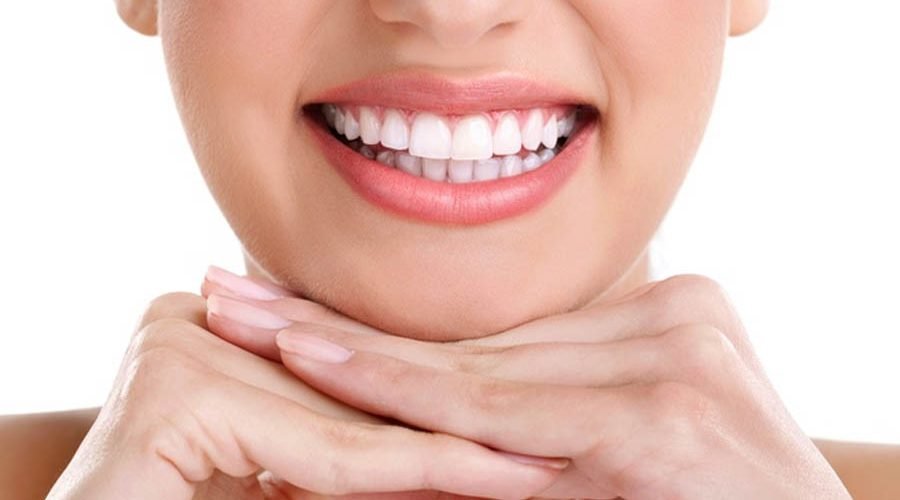Taking care of your teeth is important for both your oral health and overall health. While brushing, flossing, and regular dental check-ups are the most well-known ways to keep your teeth healthy, there are many other surprising ways to keep your teeth in tip-top shape. Here are ten surprising ways to keep your teeth healthy:
Table of Contents
Chew Sugar-Free Gum
Chew sugar-free gum has been shown to have a positive effect on dental health and can reduce the risk of tooth decay. Studies indicate that when individuals chew sugar-free gum after consuming food or drinks, they are able to remove bacteria which is responsible for causing cavities in teeth. This process, known as mechanical cleaning, helps combat the acidity produced by certain foods and beverages. Furthermore, it increases saliva production, aiding in neutralizing these acids and washing away harmful particles from the surface of teeth. In addition to this, research also suggests that chewing sugar-free gum stimulates blood flow around the gums which strengthens them against disease and provides an additional protective barrier between teeth and plaque build up. As such, regular gum chewing may be beneficial in reducing incidences of tooth decay.
Drink Plenty Of Water
In addition to chewing sugar-free gum, drinking plenty of water is beneficial for maintaining healthy teeth. Water can help protect the enamel on teeth and reduce tooth decay by removing harmful acids from the mouth. The saliva produced when drinking water helps cleanse the surfaces of teeth and gums, reducing bacteria that causes plaque and cavities. Moreover, staying hydrated with adequate intake of fluids helps stimulate the production of saliva which keeps the oral cavity moist and comfortable.
It is recommended to drink at least 8 glasses or 2 liters of water each day in order to reap its benefits for dental health. To maximize these benefits, it is best to avoid consuming sugary drinks between meals as they may increase risk of cavities. Drinking tap water also provides fluoride which strengthens tooth enamel and prevents bacteria from forming acid that attacks tooth surfaces.
Eat Cheese
The consumption of cheese has been linked to a variety of health benefits, including improved dental hygiene. Cheese and other dairy products contain calcium which is necessary for strong teeth and bones. The casein in cheese also helps protect the enamel on the surface of teeth from acid erosion caused by sugary and acidic foods. Additionally, studies have indicated that bacteria that cause cavities thrive less effectively when exposed to cheese than with other snack items such as crackers or candy.
Cheese can be beneficial for oral health due to its low sugar content and pH level, which help reduce tooth decay. Eating cheese after meals may also help neutralize acids produced by bacteria in the mouth while increasing saliva production, further reducing cavity risks. Furthermore, studies suggest that eating hard cheeses like cheddar can even increase plaque removal rates compared to other snacks such as cookies or chips.
Use A Tongue Scraper
The use of a tongue scraper is an effective tool to maintain oral hygiene and keep teeth healthy. A tongue-scraper, or dental scraper, can be used daily in combination with brushing and flossing to remove bacteria, food particles and odors from the mouth. The scraping action removes debris that accumulates on the surface of the tongue which helps reduce plaque buildup on the teeth. It also assists in eliminating bad breath by removing odor causing agents such as sulfur compounds from the back of the tongue.
Scraping your tongue should become part of your daily oral care regimen to ensure proper removal of bacteria and other debris that can lead to cavities and gum disease. Use gentle strokes when you scrape-tongue; it may take a few days practice before you get used to using a tongue scraper correctly. To maximize its effectiveness, use a new clean one every day for best results. This simple technique can help promote healthy-teeth as well as keeping a clean mouth free from bad breath and other oral health issues caused by bacterial build up on the tongue’s surface.
Aside from a tongue scraper, this professional dentist in Decatur also recommends flossing your teeth on a daily basis.
Oil Pulling
Oil pulling has been gaining popularity in recent years as an alternative to traditional oral hygiene methods. It is based on the ancient Ayurvedic practice of oil gargling, and involves swishing a tablespoon of oil around the mouth for 10-20 minutes before spitting it out. Coconut oil is most commonly used for this purpose, although other oils such as sunflower or sesame can also be used.
The primary benefits of coconut oil pulling are that it helps reduce inflammation in the gums, removes bacteria from between teeth and along the gum line, and may help prevent tooth decay by removing plaque buildup. Studies have shown that regular coconut oil pulling can significantly improve overall dental health and reduce bad breath caused by bacteria build up in the mouth. Additionally, coconut oil contains lauric acid which has antibacterial properties that can help protect against cavities and other forms of tooth decay.
Coconut oil pulling should not replace brushing your teeth twice daily with fluoride toothpaste; however, when done regularly alongside proper brushing habits it can provide additional protection against cavities and improve overall oral health.
Eat Crunchy Vegetables
Crunchy vegetables provide an excellent source of dental health benefits. The vegetable crunchiness helps to remove food particles from in between teeth and gums, while also stimulating the production of saliva which is essential for healthy oral hygiene. Eating crunchy vegetables regularly can help keep teeth clean and free of plaque buildup. Furthermore, consuming raw vegetables has been linked to a decrease in cavities due to the fibrous texture that scrubs away bacteria found on tooth surfaces.
Studies have shown that dietary fiber plays an important role in preventing gum disease and promoting overall dental health. Vegetables are especially beneficial because they contain minerals such as phosphorus and calcium which strengthen enamel and protect against decay. Additionally, certain vitamins found in vegetables like vitamin C have been known to reduce inflammation around the gums caused by periodontal diseases such as gingivitis or periodontitis.
In order to maximize the dental benefit of eating crunchy vegetables, it is recommended to consume them at least three times per day in their raw form with minimal cooking preparation involved. This will ensure that all nutritional properties remain intact so that maximum health benefits may be achieved through regular consumption.
Avoid Sugary Drinks
In addition to eating crunchy vegetables, avoiding sugary drinks is another key way to maintain good dental health. Sugary beverages such as soda and sweetened juices can play a major role in causing tooth decay through the sugar they contain. When consumed often, these sugary drinks lead to excessive plaque buildup around teeth that leads to cavities and other problems with oral hygiene. Therefore, it is important for individuals to avoid drinking sugary beverages whenever possible or if necessary, opt for sugar-free alternatives instead.
The best option for individuals when considering their beverage choice is to choose drinks without added sugars like water or unsweetened tea. Additionally, there are several low sugar juices on the market which may be healthier than traditional sodas but still contain some form of added sugar; therefore, no sugar juices are always recommended over any type of juice with added sugars. Furthermore, artificial sweeteners should not replace natural sources of sweetness since research has suggested potential links between them and increased risk of certain conditions including diabetes, obesity and depression. In light of this information, opting for no sugar options is still the most beneficial path towards maintaining good oral health habits.
Use Fluoride Toothpaste
The use of fluoride toothpaste is a key element to maintain dental health. Fluoride toothpaste helps strengthen teeth by aiding the remineralization process and protecting enamel from acid attacks, thereby reducing cavities. Various brands are available on the market today with different types of active ingredients, as well as formulations for different age groups.
It is important to note that all fluoride toothpastes must contain at least 1000 ppm of fluoride in order to be effective against cavity prevention; however, many brands exceed this amount. Additionally, there are other ingredients present in some products such as triclosan which has antibacterial properties or xylitol which can reduce plaque accumulation. Depending on individual needs, selecting the right type of product is essential since it affects overall oral hygiene results.
Don’t Use Your Teeth As Tools
Using teeth as tools can cause serious damage to your dental health. It is not uncommon for people to try and use their teeth to open packages, rip tags off of clothing, or even bite into hard objects such as ice cubes. Even though it may seem like an easy solution at the moment, this practice should be stopped immediately due to the potential harm that could ensue.
Biting down on anything other than food can result in tooth chipping, cracking, or breaking. Teeth are delicate instruments and should only be used for eating and speaking purposes; any additional strain placed upon them can increase the risk of further damages which leads to expensive repairs from a dentist. Therefore, when faced with items that require extra force to open or cut through, one should avoid biting altogether and find alternative solutions instead.
Manage Stress
Stress has been linked to dental problems such as grinding teeth, clenching jaw muscles and canker sores. To keep teeth healthy it is necessary to practice stress-management techniques on a daily basis. Reducing stress can be done in many ways including mind relaxation exercises, yoga or deep breathing. Doing these activities at least twice a day can help reduce the amount of stress that builds up throughout the day.
In addition to reducing stress levels, other methods of coping with stress are also important. This includes setting realistic goals for oneself and taking time out during the day for self-care activities such as exercising and eating nutritious meals. It is also important to take breaks from work when feeling overwhelmed and find meaningful social support networks. Taking part in hobbies or engaging in recreational activities can also provide an outlet for managing stressful situations while providing positive outlets for energy release which will aid in keeping teeth healthy.
Conclusion
By taking these steps each day, individuals can reduce their risk of developing common oral problems such as cavities or gingivitis. It is recommended to brush twice daily with fluoridated toothpaste and floss once per day in order to remove any plaque buildup that may have accumulated between meals throughout the day. Furthermore, scheduling regular checkups with a dentist will help detect any issues early before they get worse.





